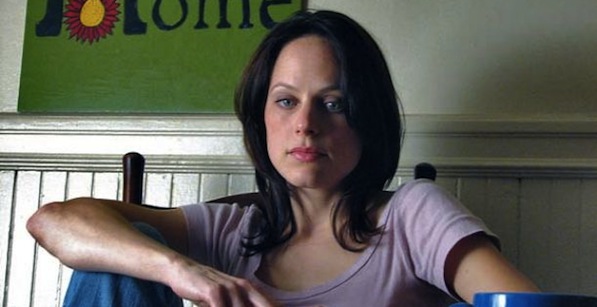Miles Montalbano’s Revolution Summer conveys some fascinating contradictions that may be indicative of a feature debut made by a fortysomething director. Thematically, it’s an angry young man’s movie, railing at the injustices and confusions of young adult life; yet it’s filmed and directed with more objectivity than rage. The result is a calmly compassionate portrait of souls adrift in a world seemingly without values, and on the brink of violent upheaval.
In an interview with Michael Fox for SF360, Montalbano shares how his own rage at the political climate during the Bush administration motivated him to make the film:
I had been feeling very frustrated with the ways of the world [and] what was going on in the world. It was the start of the Iraq War, the Patriot Act, 9/11, all of these things were at the forefront of a lot of people’s minds. I don’t feel like I have any answers politically, or that that’s the filmmaker’s place, but it came from a personal place of feeling so angry some days and frustrated other days. ‘Why aren’t we all out in the streets right now? Why aren’t we throwing bricks and bottles? No one cares, this is always the way things are. Let’s just go get a beer and have a good time.’ I was trying to reconcile those feelings in myself, and wondering what should we be doing now.
One of Montalbano’s concerns was the political and ideological principles (or lack thereof) of his younger counterparts in the face of so much turmoil in the world. He thus conceived of a drama involving three such characters trying to find their way: Hope (Mackenzie Firgens), a vaguely idealistic woman with no real direction; her best friend, Francine (a courageous performance by Lauren Fox), who lives in a hedonistic frenzy of drugs and sex; and Frankie (Samuel Child), whose search for meaningful action leads him into a domestic terrorist plot.
The film is clearly influenced by such 60s touchstones as Medium Cool and Zabriskie Point, as well as the French New Wave. Montalbano’s lifelong love of radical art cinema was also what alienated him from the dominant sentiments of his classmates during his years in film school:
I had this idea about college where I thought I’d find all these hip people to hang out and talk about Godard films with, and it seemed most people I met were interested in moving to Hollywood and working on the next ‘Star Wars’ film. I was discouraged by film school, and after my third year I felt like I couldn’t justify my student loans anymore and I decided I needed to make films.
It seems Montalbano’s work is informed by a sense of alienation at the apolitical value system offered to him by institutions, professions and society at large. But what keeps Revolutionary Summer from being a screed is his ability to dramatize these concerns within his characters:
I’m still interested in how you live in a world that oppresses and alienates people,” he said, “living in this modern world that we’ve been born into, and the spiritual needs that are maybe not being addressed for a lot of people, and how hard communication between men and women is.
Read Michael Fox’s full interview with Miles Montalbano at SF360. Also read a feature profile on Revolution Summer, originally published in Release Print, available on the Revolution Summer website.




